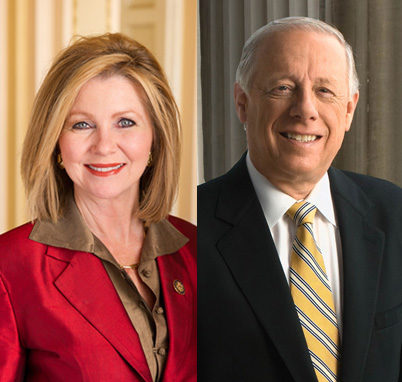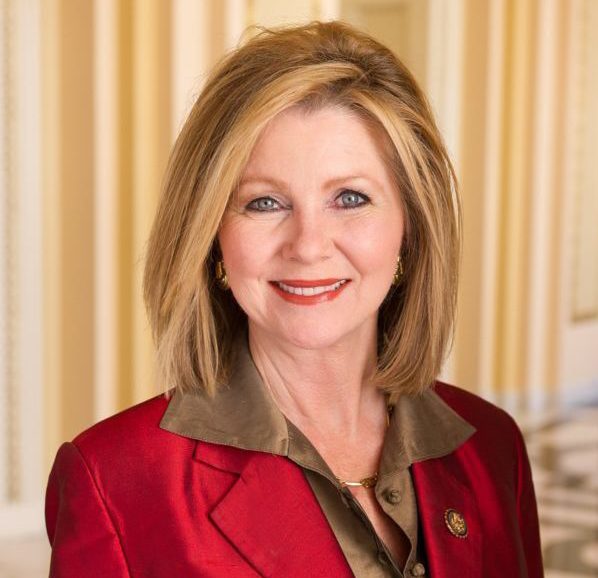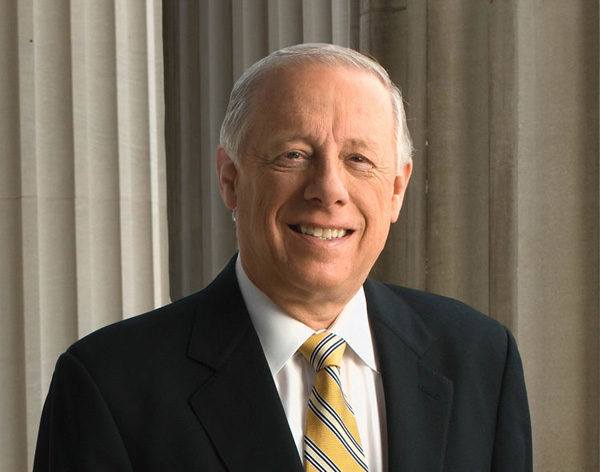
When Tennessee voters head to the polls for the primary and general elections later this year, they will find fewer incumbents on their ballots than in previous years. Governor Bill Haslam has served his two terms, creating a vacancy for governor of Tennessee, the executive branch in state governance. In a surprising turn of events last September, Tennessee Senator Bob Corker announced that he would not seek re-election, creating an additional vacancy in one of Tennessee’s highest political offices.
The United States Senate, the upper chamber of Congress, works alongside the House of Representatives to form the legislative branch of the United States government. Unlike the House, with its 435 members representing districts based on population results, the Senate has 100 members: two per state that both represent the state as a whole, rather than districts. Former governor of Tennessee, Senator Lamar Alexander also represents Tennessee in the United States Senate. Voters elect senators to terms of six years, with staggered elections. Sen. Corker’s seat is up for election in 2018 and Sen. Alexander’s seat is up for election in 2020. Tennessee Democrats have not held either of the state’s U.S. Senate seats since 1994.
Sen. Bob Corker first went to Washington D.C. in 2007 after defeating former Congressman Harold Ford Jr. in 2006 with 50.7% of the vote. He assumed the senate seat vacated by former Senator Bill Frist, who had promised to only serve two terms. With Corker retiring, this is the first time the seat has not had an incumbent since Frist’s retirement 12 years ago. Before he came to Washington and chaired the Senate Foreign Relations Committee, Sen. Corker served as Mayor of Chattanooga and served as commissioner for the Tennessee Finance and Administration Department.
Once a potential vice president contender for the Trump administration, Sen. Corker had a tumultuous relationship with the White House in 2017 and 2018. Sen. Corker has often been a vocal opponent of the Trump administration; from criticizing the travel ban executive order and condemning the president for his remarks on Charlottesville to describing the White House as “an adult day care center,” Corker has been consistently vocal about his concerns and opposition to the administration. Last summer, Corker said, “The president has not yet been able to demonstrate the stability nor some of the competence that he needs to demonstrate in order to be successful.”
However, nearly as often as rifts emerged between the president and Sen. Corker, the two appear to find ways to work together to advance their agendas. According to FiveThirtyEight, a political data website, Sen. Corker has voted with the White House’s priorities 87.5 percent of the time. In December, Sen. Corker initially rejected the Republican tax bill due to its $1.4 trillion deficit increase, a matter he viewed as urgent and critical for the welfare of the American economy. However, when the tax bill arrived on the floor, it had his support, a key vote for the bill’s passage.
When Sen. Corker announced his retirement last fall, he stressed the significance of the remainder of his term and his duty to public service: “I also believe the most important public service I have to offer our country could well occur over the next 15 months and I want to be able to do that as thoughtfully and independently as I did the first 10 years and nine months of my Senate career.”
With Sen. Corker’s retirement announcement, three political veterans from the state have announced their intent to run for the open seat. The deadline to file for candidacy is April 5, 2018. The primary election will be held Aug. 2, 2018.
The Candidates:

Congresswoman Marsha Blackburn
The former beauty pageant winner and current Congresswoman of Tennessee’s 7th Congressional district, Representative Marsha Blackburn is no stranger to Tennessee politics. Rep. Blackburn first ran for Congress in 1992, but lost to incumbent Congressman Bart Gordon. She remained active in politics as a delegate to the 1992 Republican National Convention and as the executive director of the Tennessee Film, Entertainment and Music Commission from 1995–97. In 1998, Rep. Blackburn joined the Tennessee Senate, representing District 23 of Williamson County. In 2002, Rep. Blackburn ran against Democrat Tim Barron for the 7th Congressional District and won with 70.7 percent of the vote. She has held the seat for 15 years and currently serves as the Chair of the Subcommittee on Communications and the Internet.
In her tenure as a Congresswoman, Rep. Blackburn has been a consistent Republican legislator. FiveThirtyEight scores her at 93.7 percent likely to vote in line with the Trump Administration. The American Conservative Union, a political advocacy group, has rated Rep. Blackburn with 100 percent on her conservative voting record four times. However, the Human Rights Campaign, an LGBT civil rights advocacy group, has rated Rep. Blackburn with 0 percent based on her voting record. Rep. Blackburn also has demonstrated support for policies such as a U.S./Mexico border wall, repealing the Affordable Care Act and preserving the Second Amendment. When initially presented with the Violence Against Women Act in 2013, Rep. Blackburn supported the bill, though she later rescinded her support and voted against the Senate version due to its provisions protecting LGBT, Native American and immigrant women.
In her campaign announcement video, Rep. Blackburn said, “I know the left calls me a wingnut or a knuckle-dragging conservative, and you know what, I say, that’s alright. Bring it on. I’m 100 percent pro-life. I fought Planned Parenthood and we stopped the sale of baby body parts.”
Rep. Blackburn has chaired the House Subcommittee on Communications and the Internet since 2017. Last year, she introduced House Resolution 86, which sought to dismantle online privacy rules that protect consumers. The legislation, championed by broadband providers but criticized by privacy advocates, repealed the rule requiring internet service providers to obtain permission from customers before sharing their online data, such as browser histories. This legislation allows the internet service providers to sell the data to advertisers without notice. According to the Center for Responsive Politics, Rep. Blackburn has received $692,309 for the 2018 election, with $66,000 from telecommunications companies. Throughout her career, she has received over $500,000 from the telecommunications industry.
___

Former Governor Phil Bredesen
In December, former Governor Phil Bredesen stepped out of political retirement and threw his hat into the race for Tennessee’s open Senate seat. Bredesen first entered politics in 1987, when he was a candidate for the mayor of Nashville. Although Bredesen lost in 1987, coming in second out of 10 candidates, he ran again in 1991 and won with 78,896 votes to his opponent’s 30,282 votes.
While serving as mayor, Bredesen entered Nashville government as an outsider and left as a champion of progress. During his two terms as mayor of Nashville, Bredesen originally pitched the idea of establishing a sports arena downtown in hopes of bringing professional sports to Music City, USA. When he left the mayor’s office for the governor’s mansion, Bredesen had succeeded in helping bring the Nashville Predators and the Houston Oilers, now the Tennessee Titans, to town.
As governor, Bredesen’s business know-how came to his aid as he inherited a state fiscal crisis; TennCare was $650 million over budget and former governor Don Sundquist had planned to remedy the budget by attempting to implement a wildly unpopular state income tax. Bredesen’s administration fought the state budget crisis and weathered the Great Recession without implementing an income tax, raising the sales tax or slashing education funding. Instead, Bredesen took a no-nonsense approach of “you can’t have Massachusetts services and Tennessee taxes,” by implementing policy changes to TennCare and spending cuts across the board. Under his leadership, teachers’ salaries rose and the state’s bond rating reached triple-A.
In his senate campaign announcement, Bredesen focused on policy issues such as the issues with the Affordable Care Act, the opioid crisis that is spiraling out of control nationwide and Congress’ irresponsible budgeting.
“It’s a mess, but it can be fixed. I’m running for the Senate because I have the right kind of experience—and the actual track record—that it will take to start working across party lines to fix the mess in Washington and bring common sense back to our government,” Bredesen said in his campaign announcement.
Bredesen is the last Tennessee Democrat to win in a statewide election. During his 2006 gubernatorial reelection campaign, Bredesen won all of Tennessee’s 95 counties with 90% of the vote. The 2018 Senate race will be Bredesen’s first competitive election since his first campaign for governor in 2002.
___
In Other Races
Last month, the State Collaborative on Reforming Education (SCORE) held a gubernatorial forum on education with five of the governor candidates. Randy Boyd, Karl Dean, Craig Fitzhugh, Beth Harwell and Bill Lee came together at Belmont University to discuss education goals and challenges in Tennessee. During their individual campaigns, each gubernatorial candidate has cited education as a top concern. Former Senator Mae Beavers was unable to attend the forum due to a death in the family. Although Congresswoman Diane Black was in Nashville and not Washington, D.C., she did not attend the forum, instead favoring a fundraiser at Southeast Venture less than five miles away from the forum. The hour-long forum is available on any USA Today Tennessee affiliate websites, including the Tennessean. This forum marks the first gathering of most of the 2018 gubernatorial candidates.
The race for state Senator Jim Tracy’s vacated seat will pick up soon following January’s special election primary race. Local pharmacist and entrepreneur Shane Reeves, of Reeves-Sain Pharmacy, defeated Gayle Jordan in the special election on March 13, 2018. Sen. Tracy was re-elected in 2016, but vacated his seat last year following an appointment as the state director of the U.S. Department of Agriculture’s Rural Development office by the Trump administration. Tracy defeated Reeves’ general election opponent, Jordan, in 2016 with 74.4 percent of the vote.













